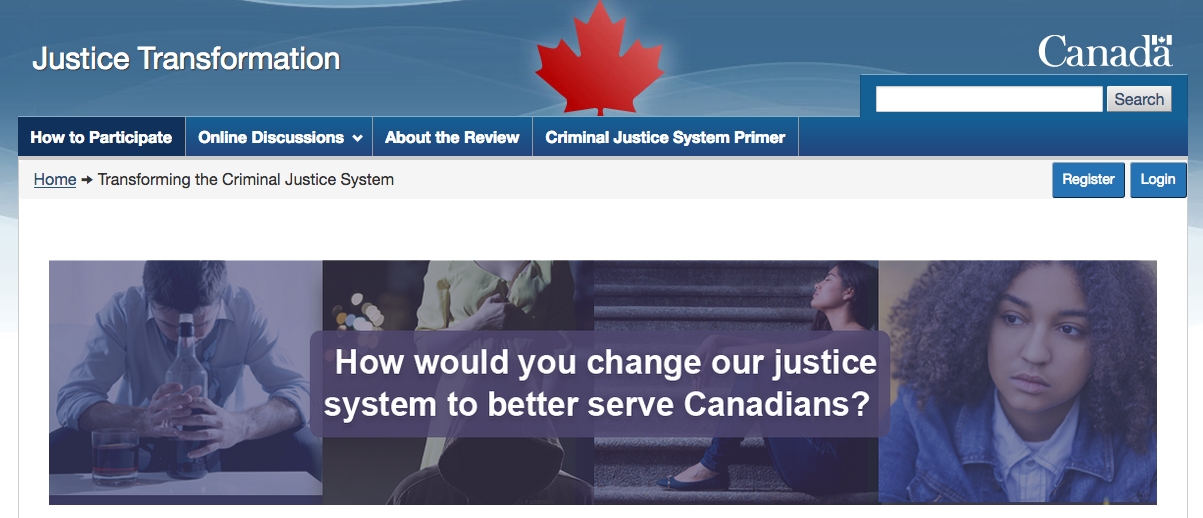
News
Justice reform consultations ask Canadians to think beyond law and order
OTTAWA — The Justice Department is asking Canadians to think beyond their preconceived notions about crimes — and the people who commit them — as the Liberal government readies long-promised reforms to the criminal justice system.
January 11, 2018 By The Canadian Press

The interactive online consultation includes a survey asking participants to weigh in on a number of stories, such as one about a young single father caught stealing $800 from his employer, resulting in a criminal record that makes it harder for him to find a job.
The survey notes that theft under $5,000 makes up a quarter of all Criminal Code offences and asks participants to consider whether the judge should have considered other options, such as a requirement to repay the money or attend a community-based program where the young man would get support.
Throughout the exercise, there are statistics and other details meant to deepen understanding of the issues being addressed.
That includes the fact administration of justice violations — such as someone drinking or breaking curfew while on probation — make up 23 per cent of all cases in criminal court, or that the crime rate in Canada has been generally on the decline for decades.
Carissima Mathen, a University of Ottawa law professor, said the consultation could help to educate the public while at the same time preparing them for potentially controversial criminal justice reforms on the horizon.
“I think it is useful for any government to have a sense of where the real sites of public resistance or apprehension are in criminal justice policy,” said Mathen.
She said Liberal government has made it clear they are planning a different approach than the tough-on-crime agenda the previous Conservative government brought in — despite repeatedly pushing back the timeline for action — but that could come with its own challenges.
“I think (the Liberals) know very well that public opinion can be whipped up to support that in ways that don’t actually comport with the evidence of crime in Canada,” she said.
Another section of the consultation lets Canadians watch a video of a real-life personal story, such as a family affected by court delays following the homicide of their son, or the victim of an alleged sexual assault who found the experience of going to trial so difficult she would warn others against it.
Canadians can then take part in an open online discussion, where the opinions are wide-ranging and a government moderator can step in to ask a contributor to point to any research they are aware of to back up their assertions, such as the claim that many make false accusations.
Steve Mihorean, the senior civil servant overseeing the review, said the department wanted to allow people to share their perspectives on these issues while also arming them with knowledge that might not be as widely known by average Canadians.
“I’m just of the view to say, be open about those questions to the public, tell them what the challenges are, give them a bit of information, let them go away on their own and think about it,” said Mihorean, director general of the criminal justice system review secretariat at the Justice Department.
Ottawa-based criminal defence lawyer Michael Spratt said he is concerned the additional consultations with the public, instead of relying on evidence-based research that has been around for years, could lead to more delays.
“The closer that we get to an election, the more worried I am that we actually won’t see anything,” he said.
The online consultation, which Mihorean said has so far seen about 4,800 people take part in the survey element, ends Jan. 31.
– Joanna Smith
News from © Canadian Press Enterprises Inc., 2018